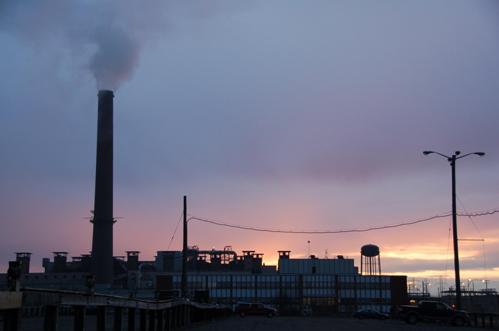
This article was originally published in the Thompson Citizen which was established in June 1960. The Citizen covers the City of Thompson and Nickel Belt Region of Northern Manitoba. The city has a population of about 13,500 residents while the regional population is more than 40,000.
Thompson NDP MLA Steve Ashton denounces Vale’s ‘arrogance’ in blistering words
November 17, 2010 – BY JOHN BARKER
EDITOR@THOMPSONCITIZEN.NET
Brazilian mining giant Vale said today it plans to phase out its smelting and refinery operations at Manitoba Operations by 2015, eliminating 500 jobs or a third of its local workforce, and focus on “developing new sources of ore as it transitions its operations to mining and milling….”
Vale dropped Inco from its name May 27 and its global nickel business is simply known now as Vale. It had operated around the world as Vale Inco since Companhia Vale do Rio Doce (CVRD) re-branded itself less than three years ago on Nov. 29, 2007. “Vale” is pronounced (vah-lay) and literally means “valley” in Portuguese.
In a blistering “MLA Report” weekly column filed today at noon that will appear in print in Friday’s Nickel Belt News, Steve Ashton, Thompson NDP MLA and minister of infrastructure and transportation, as well as the minister responsible for emergency measures and the minister charged with the administration of the Manitoba Lotteries Corporation Act, says “Vale’s announcement that they are eliminating the surface operation here in Thompson is unacceptable.”
Ashton is the longest serving MLA in the Manitoba legislature, first elected 29 years ago today in the Nov. 17, 1981 provincial election. He is second in order of cabinet precedence to Premier Greg Selinger.
























 The end of the strike that lasted nearly a year at Vale’s operations in Ontario, Canada, is very significant for our company, as we have overcome yet another challenge. Besides making our Canadian employees’ pension and variable pay regime more similar to the successful system already in place in other countries, the deal removes restrictions and interference in managing the company, thereby aligning our operational efficiency in Canada with our practices elsewhere.
The end of the strike that lasted nearly a year at Vale’s operations in Ontario, Canada, is very significant for our company, as we have overcome yet another challenge. Besides making our Canadian employees’ pension and variable pay regime more similar to the successful system already in place in other countries, the deal removes restrictions and interference in managing the company, thereby aligning our operational efficiency in Canada with our practices elsewhere.